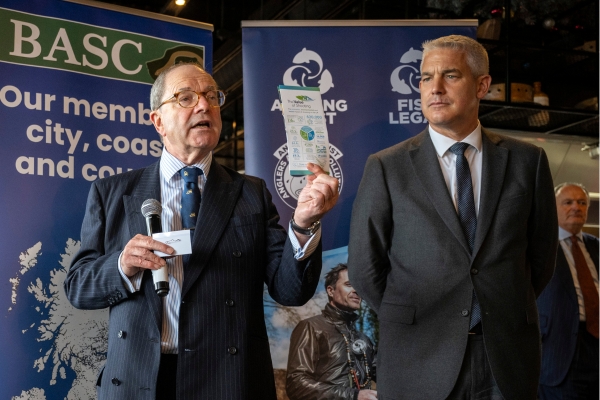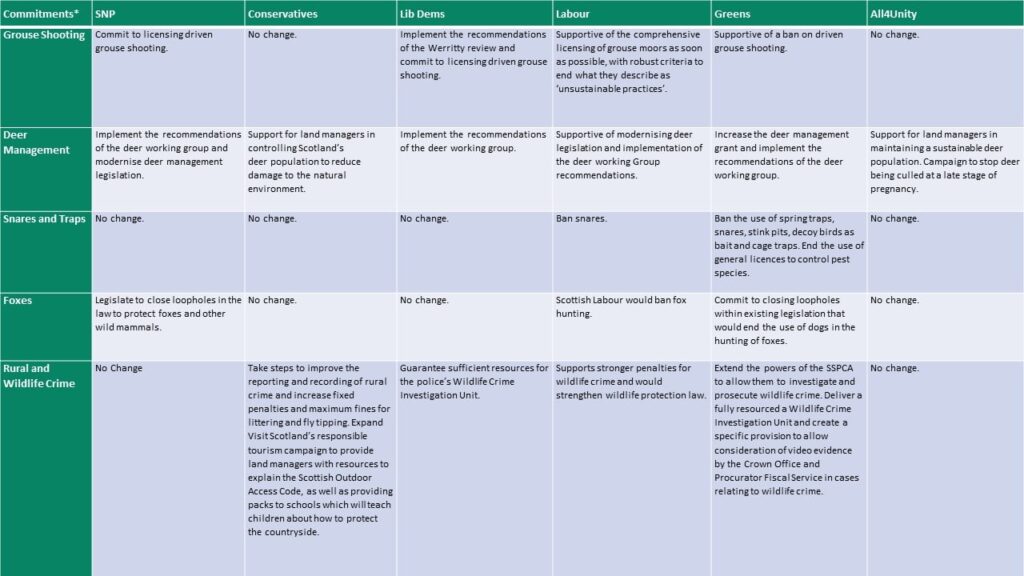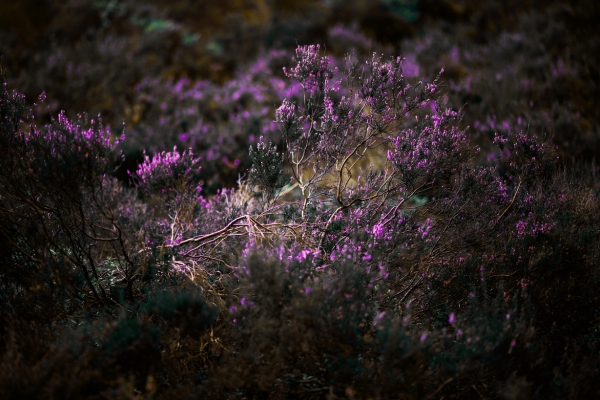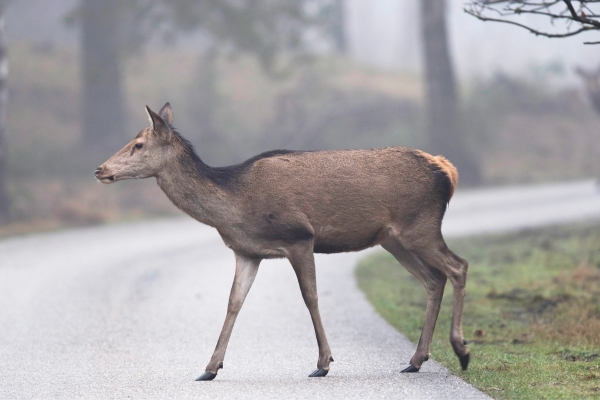
Importance of rural voices being heard highlighted at Conservative conference
“It’s a complex picture and it is important that you are listened to”, said Shadow Environment Secretary Steve Barclay MP at BASC’s Conservative rural reception.
Get information on the legal shooting season for mammals and birds in the UK.
Apply for funding for your project or make a donation today
Comprehensive information and advice from our specialist firearms team.
Everything you need to know about shotgun, rifle and airgun ammunition.
Find our up-to-date information, advice and links to government resources.
Everything you need to know on firearms law and licensing.
All the latest news and advice on general licences and how they affect you.

It is almost over. Next Thursday Scotland will go to the polls for the 2021 Scottish Parliament election.
This election has been dominated by major constitutional questions, as was the case in 2016 and 2011. Arguments about Scotland’s future inside or outside the United Kingdom and the European Union still command the discourse.
The problem with emotive constitutional debate is that almost everything else gets lost in the abyss. Pages of manifestos forgotten. Hundreds of policies neglected.
All of a sudden you’re voting for yes, no, leave or remain – but what about everything else? What about the policies that could impact on your livelihood, your sport, your recreational pastime? We must not lose sight of the policies which could directly impact on things we hold dear.
Here is a snapshot of party commitments across five key policy areas:

Grouse shooting was always going to feature in this election campaign. It is the battleground of an unrelenting class war under the guise of conservation.
Thankfully only one party – the Scottish Greens – is calling for an outright ban of driven grouse shooting. Their position is profoundly short-sighted, especially when one considers the collective findings of the Werritty review and the Scottish Government commissioned research into the socio-economic and biodiversity impacts of grouse shooting.
The Werritty review in particular was explicit in saying that grouse shooting should not be banned. The fact that the Scottish Greens are committing to a ban shows a patent disregard for science and reason, and in my view emphasises just how much this is about classism and false stereotypes.
No other party is seeking to ban driven grouse shooting, which you could argue is a mark of the perceived value of the sector. That said, three parties do support regulatory action.
The SNP and the Liberal Democrats occupy a sort of middle ground in which they seek a licensing scheme ahead of Werritty’s recommended five-year timescale. The SNP have been quite clear on this, and have made no qualms about disregarding the five year timescale which is regrettable.
The Liberal position, however, is somewhat confused in that they pledge to implement the recommendations of the Werritty review (fine) and, in the same breath, commit to licensing driven grouse shooting (not fine – Werritty said licensing should only be implemented if, within five years, it is required).
This is further compounded by the confusion that came to fruition during BASC’s Northern Scotland hustings, in which the Liberal Democrat candidate seemed to suggest Werritty’s licensing recommendation would be adhered to in full (eg. retention of the five-year time scale). It is likely though, I think, that this was an error, and that the Liberal position is to licence sooner than five years which is regrettable and certainly not in the spirit of the independent review.
The Scottish Labour position is noticeably more combative. They pledge to licence grouse moors as soon as possible with an added commitment to end ‘unsustainable practices’. Said practices include the use of snares because they are explicitly mentioned elsewhere in the manifesto.
It is not clear what other practices they deem to be unsustainable, but this does not really surprise me. When asked to justify categorising grouse moors as ‘ecological deserts’ during BASC’s Central and Southern Scotland hustings, the Scottish Labour candidate was noticeably befuddled and, when pressed, could not tell me which practices were supposedly unsustainable. Make of that what you will.
Deer management features across all manifestos, and the policies can be grouped into two positions.
First you have the Scottish Conservatives and All4Unity, who make a point of committing to supporting land managers in their efforts to manage deer. All4Unity go further and explicitly call for an end to out of season licences being used to cull hinds and does at a late stage of pregnancy.
Contributions by both parties at our hustings events made clear that they consider the existing deer management sector to have considerable and wide-ranging expertise, and that credence should be given to these views when considering any changes to deer legislation.
Secondly you have the remaining four parties, who all support implementing the recommendations of the deer working group report. I am pleased to say that all parties – including the Scottish Greens who were not present at our husting, but whom I have engaged with in other forums – accept that some of the recommendations are causing the deer management sector concern. Consultation was a key theme expressed by candidates from these parties in response to said concerns.
Indeed, although the SNP have said that they will implement the recommendations of the deer working group in their manifesto, we know from the official Scottish Government response that they have actually stopped short of accepting the most controversial recommendation – namely shortening the female close season – which is encouraging. There are other grave concerns to be addressed, however, and we will be making these quite plain in the next parliamentary session.
The other point worth noting here is that candidates from across the political spectrum have been broadly supportive of BASC’s manifesto commitment to make low-cost stalking opportunities available on public land, thereby enhancing the role that trained recreational stalkers can play in managing Scotland’s deer.
The final point policy area to consider in detail pertains to traps and snares. Scottish Labour wants to ban snares; while the Scottish Greens wants to ban snares and some traps, as well as abolish general licences that permit the control of pest species.
These are among the most concerning manifesto commitments in our view, with the capacity to significantly impede on the vital control of generalist predators to protect biodiversity and livestock. It is vital that those who use traps, snares and general licences are aware of what these parties are calling for.
The motivations behind such a destructive change are completely unfounded for two reasons. Firstly, they precede the findings of an official snaring review which is presently being carried out; and secondly, they ignore the specific recommendations of the Werritty review in relation to traps which called for enhanced training and accountability – not a ban.
It is profoundly disappointing to see these parties making commitments on a whim without considering the disastrous implications they could have.
This election is being described as the most important election since the inception of the Scottish Parliament, primarily because of its constitutional significance.
But it is also important because it follows a parliamentary term which rural workers of all persuasions have been repeatedly forgotten, marginalised and persecuted.
In light of this, it has never been more important to fully and comprehensively understand how political parties intend to govern: from the constitution; to the management of Scotland’s deer; to the use of traps and snares.
It all matters, so make an informed choice on Thursday 6th May.
You can read the party manifestos in full here: SNP, Scottish Conservatives, Scottish Labour, Scottish Greens, Scottish Liberal Democrats, All4Unity.


“It’s a complex picture and it is important that you are listened to”, said Shadow Environment Secretary Steve Barclay MP at BASC’s Conservative rural reception.

BASC Scotland has welcomed ‘sensible’ steps to tackle wildfires from the Minister for Agriculture and Connectivity Jim Fairlie MSP.

BASC has welcomed the Scottish Government’s decision to halt its proposed changes to the female deer management season.